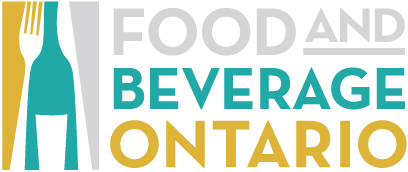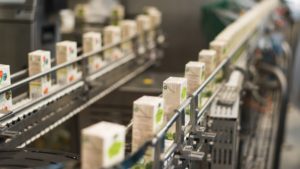Ottawa, June 17, 2019 – Food and Beverage Canada – Aliments et boissons Canada (FBC-ABC) acknowledges the Government of Canada’s leadership in announcing that it will ban harmful single-use plastics as early as 2021 and will work with provinces and territories to implement standards and reduction targets for companies that manufacture or use plastics. This announcement follows closely behind Canada’s commitments to the G7 Oceans Plastics Charter and the Canadian Council of Ministers of the Environment’s Zero Plastic Waste Strategy in 2018.
Food and beverage manufacturers recognize that plastic pollution is an important environmental issue that must be addressed for the health of oceans, lakes parks, marine animals and wildlife in Canada and around the globe. Every year, Canadians throw away over 3 million tonnes of plastic waste, with less than 11% of plastics being recycled.
“Addressing plastics waste is a complex but important priority,” said Michael Burrows, CEO, Maple Lodge Farms and Co-chair FBC-ABC. “Eliminating plastic waste from the environment will require federal, provincial and municipal governments to work closely with waste management stakeholders, packaging manufacturers and plastics users to achieve national solutions.”
While food and beverage manufacturers acknowledge the need for plastic waste reduction strategies, FBC-ABC encourages the federal government to work closely with industry to ensure companies can transition their products to new packaging options.
“It is important to remember that packaging serves an important purpose for portion control, convenience and food safety,” said Daniel Vielfaure, CEO, Bonduelle Americas, Co-chair, FBC-ABC. “Where we cannot eliminate packaging, we need to encourage and incent the development of new and innovative packaging options that reduce our reliance on single use plastics.”
Key to achieving the federal government’s objectives will be ensuring Canada’s waste management systems are primed to accept new packaging solutions. In addition, standards and targets for plastics collection, recycling and recycled content requirements should be set nationally to ensure consistency across Canada.
The food and beverage manufacturing sector is key to a prosperous Canadian economy. Food and beverage manufacturers are the leading manufacturing sector employer providing jobs for over 250,000 Canadians. Almost 11,000 manufacturing plants supply approximately 75% of all the processed food and beverage products in Canada and exports continue to increase with a value of $29.2 billion in 2016. Canadian food and beverage manufacturers are also the largest buyer of food grown by Canadian farmers.
– 30 –
About Food & Beverage Canada
Food & Beverage Canada is an association of Canadian manufacturers and regional food and beverage processor associations from coast to coast representing over 1,500 businesses. The organization is committed to collaborative relationships and constructive communications with federal and provincial governments. The organization is located in Ottawa. Visit Food & Beverage Canada for more information on the organization.
Contact:
Isabel Dopta
Communications Director
Food and Beverage Canada
idopta@fbc-abc.com
519.993.1192




